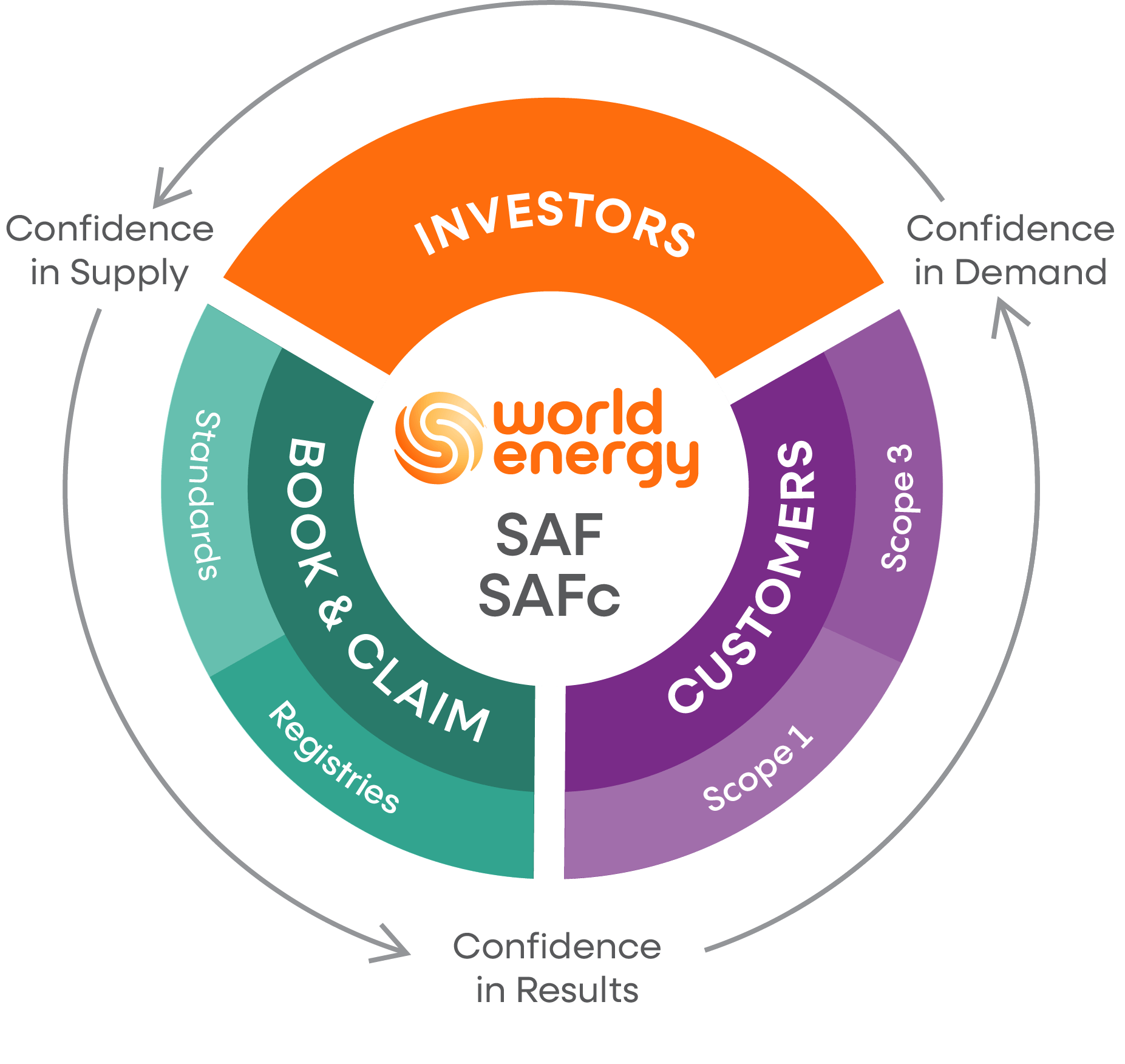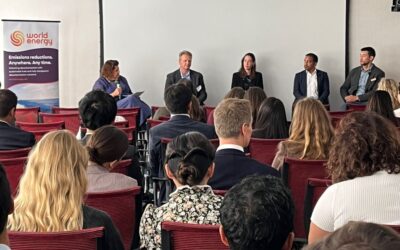Creating a Virtuous Cycle to Expand SAF Production and Distribution
Sustainable fuels are in short supply, but collaboration across the value chain can change that. Here’s how it’s working in aviation.
Collaboration among every member of the sustainable aviation fuel (SAF) ecosystem creates a virtuous cycle necessary to expand SAF production and distribution. This cycle supports confidence in the SAF market as a whole. It is essential to lowering the cost of SAF, scaling the SAF industry, and reducing the environmental impact of aviation.

Virtuous Cycle of the SAF Ecosystem
Customers
Many of the world’s leading companies have commitments to responsible business, but they have limited options for addressing flight emissions from business travel and cargo delivery. Buying SAF and SAF certificates (SAFc) enables customers to mitigate those emissions. When structured as long-term offtake, these agreements help de-risk investment, building confidence in demand and helping expand the biofuels market.
- Scope 1 customers purchase SAF to fuel their aircraft or SAFc insets to address their Scope 1 emissions, reducing carbon by blending SAF with traditional jet fuel. These customers are typically airlines, airport operators/fixed base operators (FBOs), or other fuel suppliers.
- Scope 3 customers purchase SAFc insets to address the flight-related carbon emissions that come from their business travel or cargo transport. These are typically corporations seeking ways to decarbonize their supply chains.
Book & Claim
Book & Claim is essential for scaling the biofuels industry and helping companies reduce emissions in aviation and other hard-to-abate sectors. It’s a digital chain-of-custody model that transparently tracks sustainable aviation fuel certificate transactions to ensure integrity. This cultivates confidence in the results that SAF and SAFc deliver. The entities in the Book & Claim ecosystem establish and validate standards and operate registries.
- Standard-Setting Bodies are typically nongovernmental organizations (NGOs) that define criteria and third-party auditors that verify that standards are met. Standards also establish how the environmental attributes can be decoupled from a physical fuel volume, conveyed separately, and claimed appropriately. NGOs play an important role in validation and identifying audit requirements.
- Registries enable the transfer and tracking of environmental attributes, using widely adopted industry standards and digital ledgers. World Energy currently works with several registries and helps customers select the best one for their needs.
Investors
Banks or investment partners provide capital to build new SAF refineries, convert existing fossil refineries to produce more SAF, and develop systems to deliver it into the supply chain efficiently. This is critical for creating confidence in supply. These projects are costly and take years to complete, so investors need confidence in future demand to de-risk their capital investment and enable the SAF industry to scale supply dramatically.
World Energy
We collaborate among all parts of the sustainable aviation fuel ecosystem to support the customer experience and ensure trust and quality. Our SAF and SAF certificates meet the highest standards and deliver best-in-class carbon intensity.



